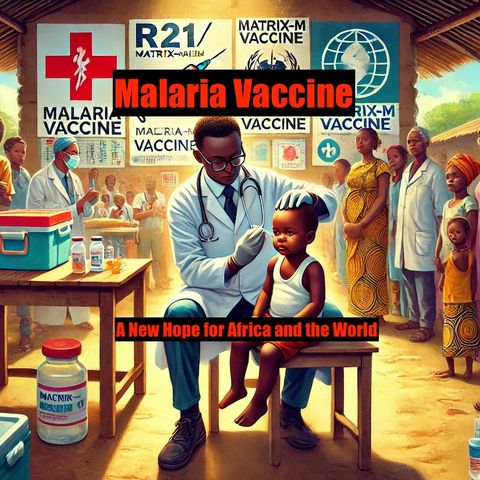Breakthrough in Malaria Vaccine Development: Promising Advancements in the Fight Against a Deadly Disease

Sign up for free
Listen to this episode and many more. Enjoy the best podcasts on Spreaker!
Download and listen anywhere
Download your favorite episodes and enjoy them, wherever you are! Sign up or log in now to access offline listening.
Breakthrough in Malaria Vaccine Development: Promising Advancements in the Fight Against a Deadly Disease
This is an automatically generated transcript. Please note that complete accuracy is not guaranteed.
Description
In groundbreaking health news, recent advancements in the development of malaria vaccines represent a significant stride in the battle against one of the world's most deadly diseases. Malaria, a parasite-caused...
show moreTraditionally, prevention strategies have focused on mosquito control and the use of insecticide-treated bed nets. However, the promise of a vaccine brings hope of a more definitive solution to this public health crisis. The most advanced vaccine to date, known as RTS,S or Mosquirix, has undergone extensive testing and was endorsed by the World Health Organization (WHO) in 2021 for broader use among children in Sub-Saharan Africa and other high-risk areas.
This endorsement followed a pilot immunization program in Ghana, Kenya, and Malawi, which began in 2019. The results have been promising, demonstrating significant reductions in malaria cases among vaccinated children. RTS,S, developed by GlaxoSmithKline in partnership with the PATH Malaria Vaccine Initiative and with support from the Bill and Melinda Gates Foundation, is the first, and currently only, vaccine that has demonstrated the ability to significantly reduce malaria, and its most severe complications, in young children.
While RTS,S shows substantial efficacy, it provides about 30-40% protection against severe forms of malaria, which, although not perfect, is a considerable advancement in malaria prevention. The vaccine is administered in a series of four doses, which poses logistic challenges in remote and impoverished areas.
Researchers and public health experts are continuing to optimize the RTS,S vaccine and are also exploring second-generation vaccine candidates. One promising candidate is the R21/Matrix-M, which has shown up to 77% efficacy in Phase IIb trials. Developed by the University of Oxford and in partnership with Serum Institute of India, this vaccine could potentially offer a higher degree of protection and durability than RTS,S.
The ongoing research presents a pivotal moment in global health. For decades, malaria has been a leading cause of morbidity and mortality in many parts of the world, particularly in Africa and South Asia. The development and implementation of an effective vaccine could change the landscape of malaria prevention and control.
In addition to the scientific challenges, vaccine distribution and accessibility in low-resource settings remain critical issues that need addressing to achieve widespread and sustainable impacts. Successful rollout of these vaccines will require robust collaboration between governments, global health organizations, and communities.
As the world watches these developments, the continued innovation in malaria vaccine research is a beacon of hope for millions at risk of this deadly disease, promising a future where malaria could potentially be eradicated.
Information
| Author | QP-4 |
| Organization | William Corbin |
| Website | - |
| Tags |
Copyright 2024 - Spreaker Inc. an iHeartMedia Company
